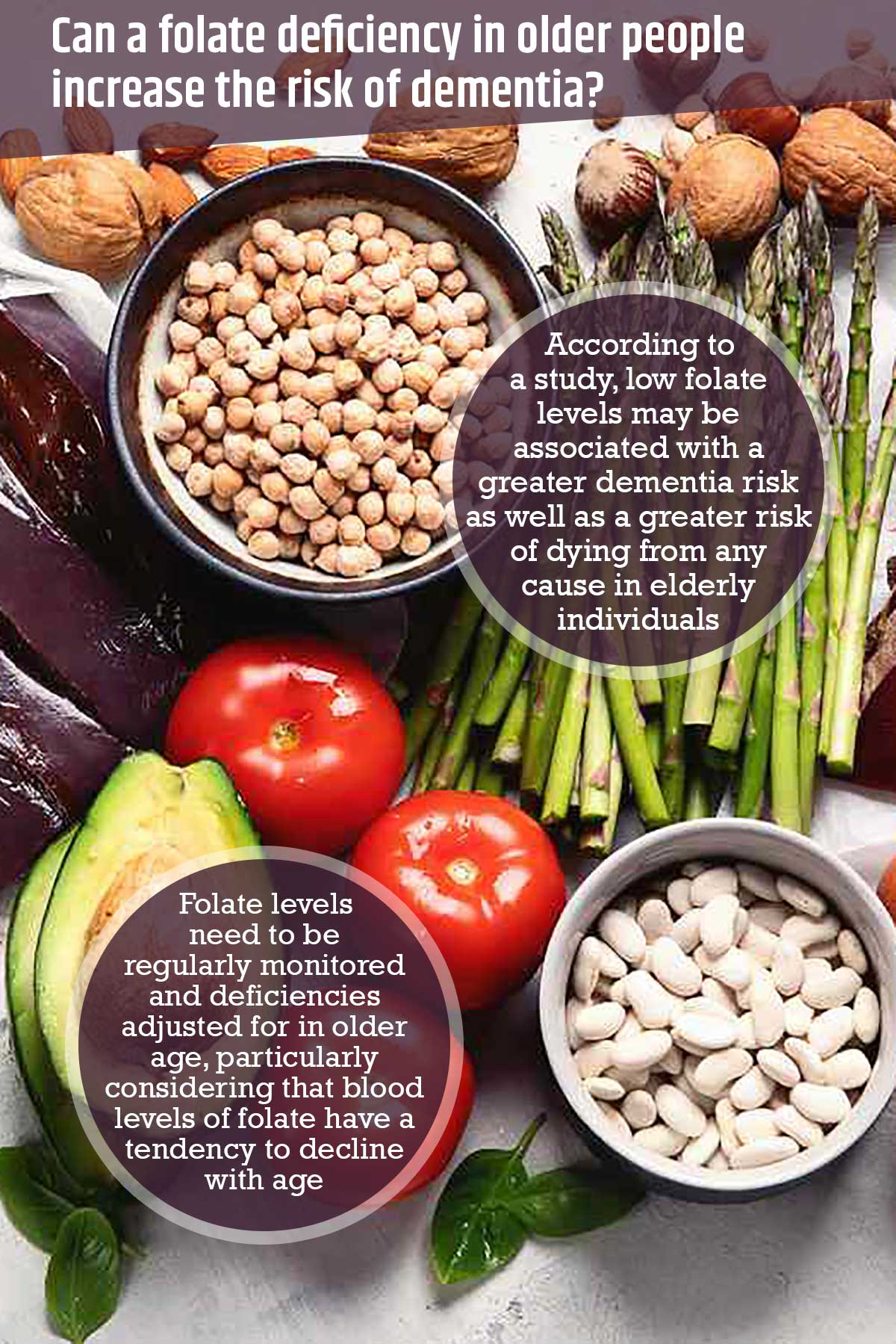According to a study, low folate levels may be associated with a greater dementia risk as well as a greater risk of dying from any cause in elderly individuals.
Folate levels need to be regularly monitored and deficiencies adjusted for in older age, particularly considering that blood levels of folate have a tendency to decline with age, with as many as 1 in 5 older individuals estimated to be deficient in folate.1✅ JOURNAL REFERENCE
DOI: 10.1136/ebmental-2021-300309
So far, the evidence indicates that a deficiency in folate has an impact on cognition and nerve signaling in the brain, which makes it a potential risk factor for dementia. However, the little research that has examined this has included small numbers of study participants producing mixed results.
And due to the time it takes for the development of dementia, it’s been challenging to eliminate reverse causation, which is when a deficiency in folate could be the result of pre-clinical dementia instead of its cause.
So the researchers wished to determine if a deficiency in serum folate could be associated with incident dementia risks as well as dying from any cause in a large sample of older individuals with the inclusion of reverse causation possibility.
The researchers used data from the medical records of 27,188 individuals between the ages of 60 and 75 without pre-existing dementia for a minimum of 10 years prior to blood folate levels being checked in 2013 when the study started. The medical records were then monitored for a dementia diagnosis or death until the end of 2017.
Almost 13% of the individuals had a folate deficiency, classified as levels less than 4.4 ng/ml. A deficiency in folate was linked to a significantly increased dementia risk as well as dying from any cause. In folate-deficient individuals, the estimated dementia incidence was 7.96 for every 10,000 person-years, and the estimated death from any cause was 19.20 for every 10,000 person-years.
This was in comparison to an incidence of dementia estimated at 4.24 as well as dying from any cause estimated at 5.36 for every 10,000 person-years in individuals who did not have a folate deficiency.
In terms of percentages, dementia rates were almost 3.5% and of dying from any cause just less than 8% in folate-deficient individuals, in comparison to rates of dementia just more than 3% and of dying from any cause of nearly 4% in individuals who did not have a folate deficiency.
After potential influential factors were taken into account, which included folic acid supplement usage, smoking, cognitive decline, depression, co-existing diabetes, and vitamin B12 deficiency, individuals with folate deficiency were 68% more likely to be dementia diagnosed and almost 3 times as likely of dying from any cause.
The observed associations were not significantly weakened by further analyses, but reverse causation could not be ruled out.
Since this was an observational study, it couldn’t establish cause, especially considering the possible role of reverse causation.
A deficiency in folate might however affect levels of homocysteine and subsequently the vascular risk of dementia, and/or DNA neuron repair could be compromised, which makes the neurons vulnerable to oxidative damage, which could consequently speed up the aging and damage of brain cells.



